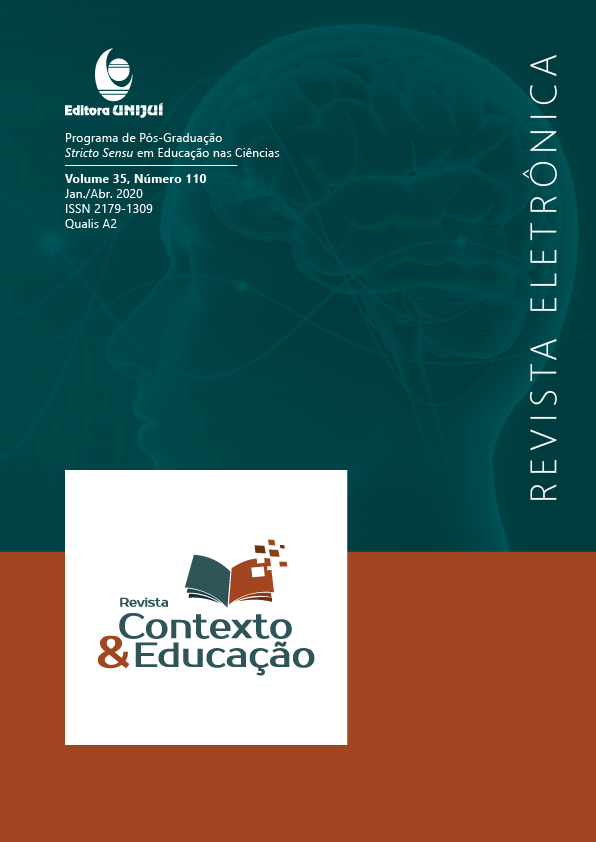O CURRÍCULO DE QUÍMICA NA EDUCAÇÃO BÁSICA: CONCEPÇÕES E PRÁTICAS DE PROFESSORES
DOI:
https://doi.org/10.21527/2179-1309.2020.110.202-225Keywords:
Innovative Curriculum; Curriculum Technicality; Curriculum as Speech / DefinitionAbstract
This article presents partial results of Master's Dissertation in the Graduate Program in Education in Science of a Federal University of the south of Brazil. It was asked: what curriculum of chemistry do teachers consider relevant and on what criteria is their choice based? It was heard teachers of Public Schools of the High School through a semistructured interview analyzed in light of the methodology of Discursive Textual Analysis (ATD in Portuguese). The general objective of the research was to recognize and interpret what the Chemistry Education community (Teachers) think about the Chemistry Curriculum in Basic Education in terms of conceptions, discourses and practices. Five categories of analysis were recognized, which are presented with propositions, and for this article it was chosen to present three of these categories: Innovative Curriculum; Curriculum Technicality and Curriculum as speech / definition. Among the results it was noticed that the teachers recognize that there is a need for an innovative curriculum, which relates the scientific contents to the daily life of the student, as well as, contemplate differentiated methodologies of work in the classroom; interpreted within the horizon of theoretical and practical conditions.
Downloads
Published
How to Cite
Issue
Section
License
By publishing in Revista Contexto & Educação, authors agree to the following terms:
All works are published under the Creative Commons Attribution 4.0 International License (CC BY 4.0), which allows:
Sharing — to copy and redistribute the material in any medium or format;
Adaptation — to remix, transform, and build upon the material for any purpose, even commercially.
These permissions are irrevocable, provided that the following terms are respected:
Attribution — authors must be properly credited, a link to the license must be provided, and any changes made must be indicated.
No additional restrictions — no legal or technological measures may be applied that legally restrict others from doing anything the license permits.
Notices:
The license does not apply to elements that are in the public domain or covered by legal exceptions.
The license does not grant all necessary rights for specific uses (e.g., image rights, privacy, or moral rights).
The journal is not responsible for the opinions expressed in the articles, which are the sole responsibility of the authors. The Editor, with the support of the Editorial Board, reserves the right to suggest or request modifications when necessary.
Only original scientific articles presenting research results of interest that have not been previously published or simultaneously submitted to another journal with the same purpose will be accepted.
Mentions of trademarks or specific products are intended solely for identification purposes and do not imply any promotional relationship by the authors or the journal.
License Agreement (for articles published from October 2025): Authors retain the copyright to their article and grant Revista Contexto & Educação the right of first publication.


